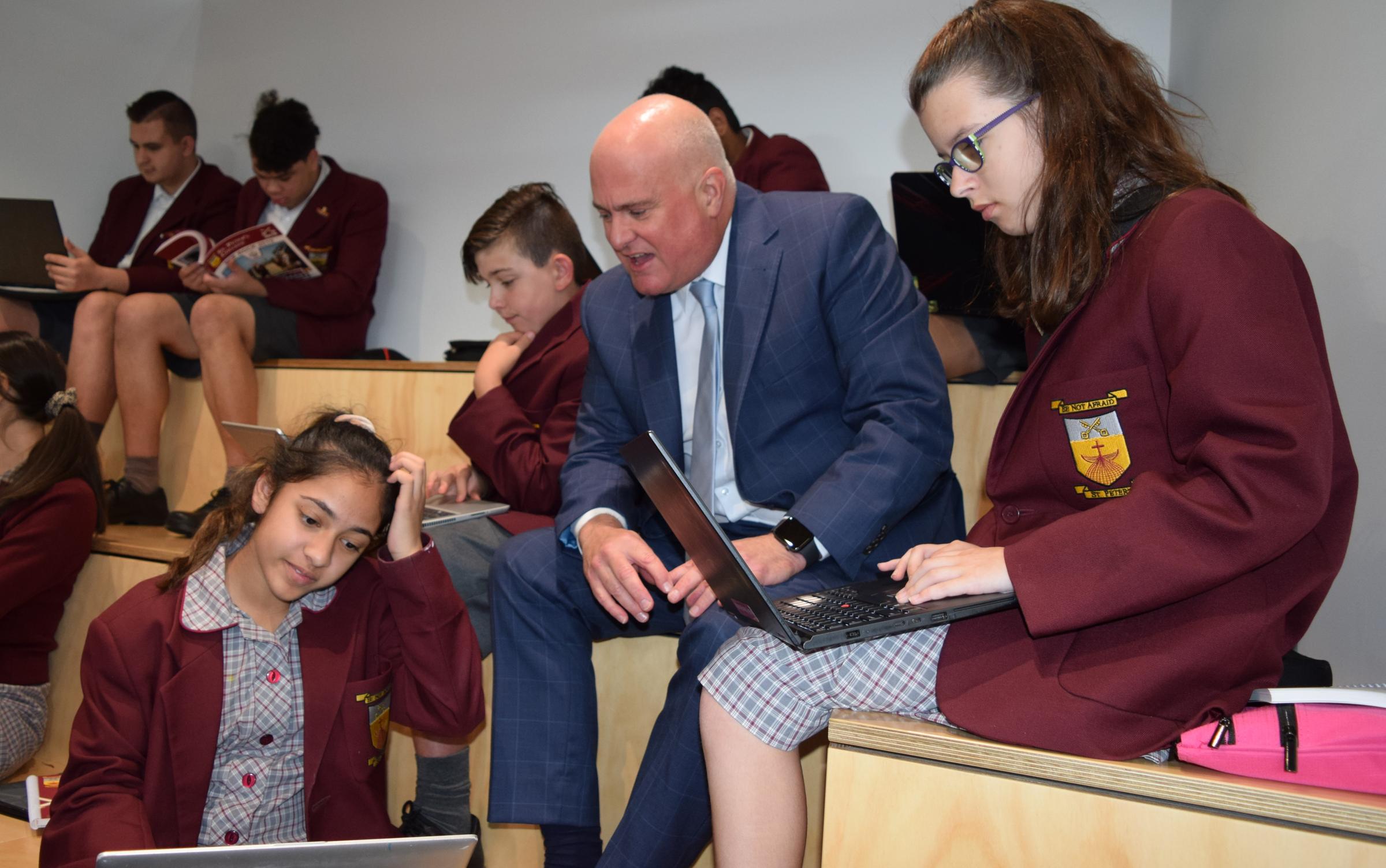From our Principal

Dear Parents, Students and Friends,
I spoke recently to the college community at our opening assembly around the words of John Allen Paulos, an American mathematician and Temple University professor who stated: “Uncertainty is the only certainty there is, and knowing how to live with insecurity is the only security”. I was reminded of these words when the state of Victoria recently went into a snap lockdown. Questions which surfaced for me, as the news broke included: How will students react? Can we ensure students engage in meaningful learning with little notice? How will our Yr 7s manage with Zoom? How do we work at getting communication out to parents in quick time?
It was with a sense of pride (and a little bit of relief) that we discovered how quickly we can launch into remote schooling. Feedback from staff was that students were engaged with their learning, had their cameras turned on and were recording very high attendance rates. My reflections on the snap lockdown experience was that whilst this “practice” run was a considerable success we can hope and pray that there are very few, if any more of these throughout 2021. Secondly, we learnt that we can switch to the remote schooling mode of learning with little warning and thirdly the success of the rollout this time around was due in part to resilient learners and teachers that had been down this road before and were able to do so again, if required, and at a moment’s notice.
I attended a Principal’s meeting last week and heard from Jim Watterson, Dean of the Graduate School of Education at the University of Melbourne. He suggested a number of learnings emerged from Remote Schooling in 2020 including the following: schools have had to develop stronger relationships with parents and caregivers for learning to have an impact and secondly, the innovation required to quickly provide home-based learning came from the bottom-up. In summary then, no matter what the forum for learning, whether it is home-based or at school, the adage it takes a village to raise a child is very poignant, relevant and necessary and in that village parents and teachers have a very important role to play.
Building Projects
St. Peter’s College is committed to providing a learning environment which fosters a deep love of learning and strives to present facilities which stimulate and engage students in learning. As a college we also need to prioritize the safety of both students and staff. There are a number of exciting builds which have either just been completed or are in the process of being built. These include:
Refurbishment of the Donnelly building on the Cranbourne Campus which now houses our VCAL programs. The design allows students to flow through from one workspace to the next. The flexibility of the learning spaces enables hands on learning to sit easily alongside more traditional learning and teaching modes.
The commencement of the new Administration Building, also on the Cranbourne site will be a 12 month build and once completed will be able to house senior leadership, administration and finance alongside a staffroom and a number of breakout meeting spaces. Parents will much more readily be able to access the services within this facility. This build and the closure of the Cranbourne-Frankston Rd has resulted in parents and students having to re-think their access to the college. I thank parents for their co-operation and ask that wherever possible that you do not enter the school grounds.
Work has commenced on the Performing Arts Centre on the Clyde North Campus. Due for completion in March of 2022, this facility, connected to the Music/Drama and Dance space will include a 500 seat auditorium enabling the performing arts to display their craft.
Enhancing Catholic School Identity Project
Every four years St. Peter’s College commits to undergoing a review of Catholic Identity as it relates to us at St. Peter’s College. We are continually being challenged to express our distinctiveness, identity and vision as a Catholic school in a society where the Christian faith is increasingly marginalised. The Diocese of Sale Catholic Education Limited aims to assist schools like St. Peter’s College to understand better how our Catholic identity is expressed in work and practice. The Catholic Education Commission of Victoria and the Sale Catholic Education Office have entered into a partnership with the Catholic University in Leuven, to profile and enhance the Catholic identity of the schools in the diocese through the use of a number of surveys and questionnaires. These will assist us to understand better how our Catholic identity is expressed in work and practice and to support us in shaping our future development. The main questions being explored are: How is Catholic identity lived and shaped in the school? What is the preferred situation? What is the potential present in the school to realise its preferred Catholic identity? I ask parents to engage in this important data collection process. Further information will be distributed to you early next week.
Enjoy the week ahead.
Mr Chris Black
Principal

